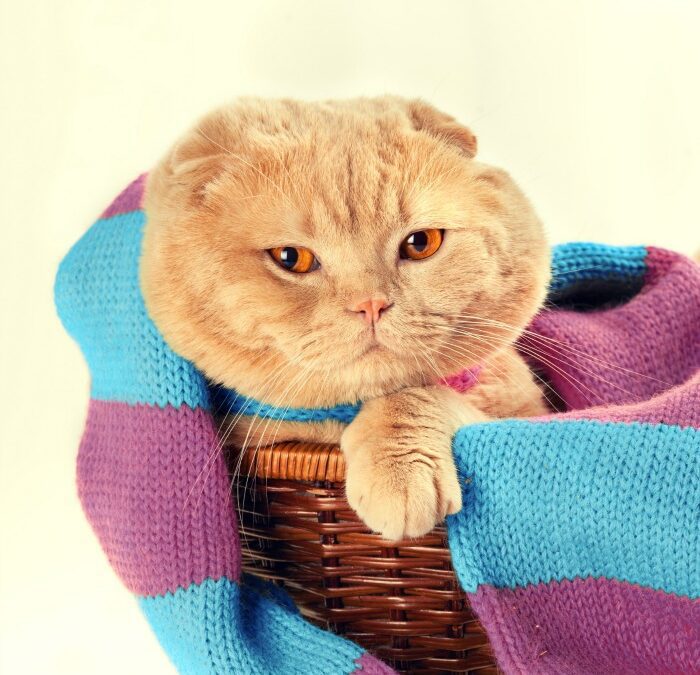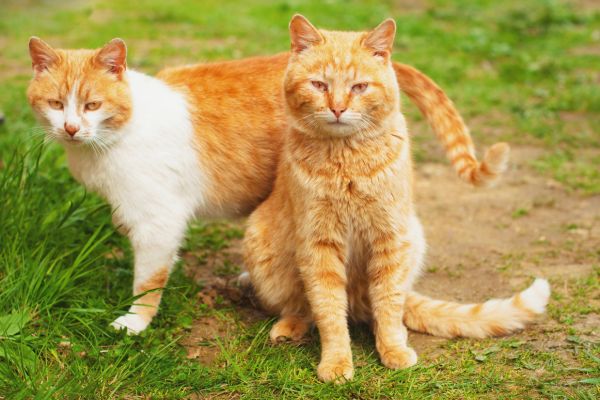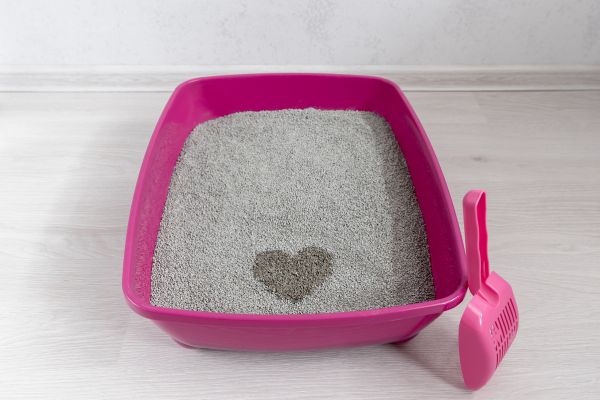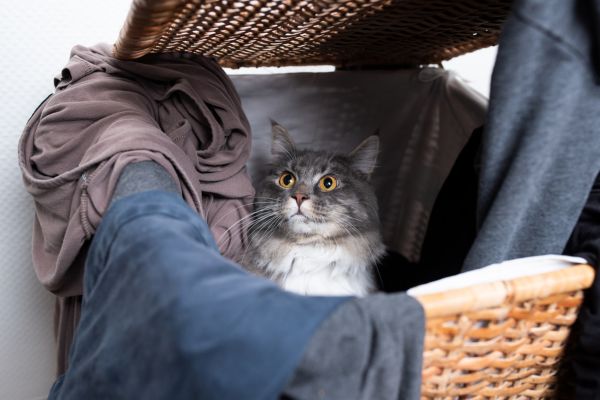Note to readers: This is one of our most popular articles. We’ve updated it with more detailed information for 2024.
Inappropriate urination is the leading cause of cats being surrendered to shelters.
While there are several underlying causes, they can generally be broken down into medical causes, behavioral causes, and litter box causes (or some combination of these three).
Medical causes
When cats choose somewhere besides their litter boxes to urinate, veterinarians look for health concerns such as kidney disease, hyperthyroidism, diabetes, crystals in the urine (a potentially life-threatening situation in male cats), bladder stones, or bladder inflammation caused by an infection or stress.
Common medical conditions that can cause inappropriate urination:
- Urinary tract infection (UTI): A UTI is a bacterial infection of the bladder or urethra. UTIs are common in cats and can cause pain, urgency, and frequency of urination.
- Feline lower urinary tract disease (FLUTD): FLUTD is a group of conditions that affect the lower urinary tract in cats. FLUTD can cause pain, inflammation, and blockages of the urethra.
- Kidney disease: Kidney disease can cause an increase in urination and thirst.
- Diabetes: Diabetes can cause an increase in urination and thirst.
- Endocrinopathies: Endocrinopathies are disorders of the endocrine system, which can cause a variety of symptoms, including inappropriate urination.
The pain cats experience can lead to behavioral-inappropriate urination due to a learned aversion to the “offending” litter box seen as the source of pain by the cat.
Laundry on the floor offers a soft, welcoming place to try to relieve the pain.
Behavioral causes
Conversely, behavior may be the underlying cause of inappropriate urination in and of itself.
Domestic cats are closely related to wild cats who live in groups of related female cats, roaming and defending territories of about 10 acres.
We humans, who love them, often force them into unnatural situations where they feel crowded, bored, or anxious.
Squabbling between cats or a dog, strangers in the home, noise, or a scary event that occurred while they were using the litter box (intimidation by another cat or a washing machine buzzer, for example) can also be the underlying cause.
Other stressful situations may include changes in the household, such as a new pet or a new baby, or changes in the cat’s environment, such as a move to a new home.
Cats may mark their territory with urine, especially if they feel threatened or insecure.
Litter box causes
Let’s not forget the litter box itself!
When a litter box isn’t up to a cat’s standards (think Porta Potty at a trailhead in August) or she doesn’t care for the perfume or texture of the litter, she may decide to “go” elsewhere (like on the laundry).
Two rules of thumb we champion
You can never have too many, too large, or too clean litter boxes.
You need one litter box per cat, plus one, and one on every floor of the house.
Litter box tips
- Litter box location: Place the litter box in a quiet, private location.
- Litter type: Cats have texture preferences for a number of the things they do naturally, including urinating. Some cats prefer softer substrates, such as laundry or plastic bags on the floor, instead of cat litter (especially pelleted or old-fashioned clay litter). Other cats don’t seem to care. Experiment until you find one that your cat likes.
- Litter box size: The litter box should be large enough for your cat to comfortably turn around in.
- Litter box cleanliness: Scoop out waste daily and completely change the litter at least once a week.
- Pheromone diffuser: Some cats may benefit from using a calming pheromone diffuser in the area where the litter box is located. This can help to reduce stress and anxiety, which can sometimes lead to inappropriate urination.
Determining the cause of inappropriate urination
If your cat is showing signs of stress, such as excessive grooming, hiding, increased vocalization, or aggression, consult your veterinarian or a veterinary behaviorist. These changes may be a sign of a medical problem or a behavioral issue that requires treatment.
Figuring out the underlying cause of inappropriate urination starts with a thorough history and complete physical exam, including a urinalysis that is run right away (not sent to the lab) to look for crystal formation, blood tests to look for diabetes, kidney disease, and hyperthyroidism.
Often, we will also recommend bladder imaging, such as X-rays or an ultrasound, to look for bladder stones and possibly, at kidney health.
If all tests check out, we’ll explore possible behavioral causes. Here is where a house call visit from a veterinarian experienced in cat behavior can be helpful in assessing life from the cat’s point of view.
Fortunately, there is hope for most cats that are urinating outside the litter box if the problem is addressed quickly, before it becomes a more serious medical issue or a habit if it’s a behavioral issue.





